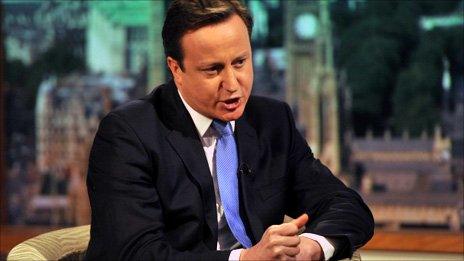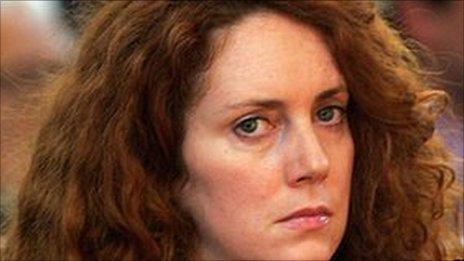Vote 2012: What were the people saying?
- Published
- comments
The people have spoken. The question now is - what exactly were they saying?
The answer may seem obvious. Voters have punished the coalition. The Conservatives have suffered their first drubbing since taking office. The Liberal Democrats a repeat of the electoral torture they suffered last year. Labour has bounced back from its electoral flattening at the last general election making gains in the places Tony Blair once used to reach.
So far so clear, but what's far from obvious is whether this is merely the sort of mid- term punishment from which both Mr Blair's and Mrs Thatcher's governments recovered easily.
After all, Neil Kinnock's Labour Party did better than Ed Miliband's has done and yet he went on to lose to John Major. William Hague and Michael Howard did just as well before they lost to Tony Blair.
That was in the era of long stretches of one-party rule familiar for the past three decades. These elections could, instead, mark a return to the politics of the 1970s when a government's mid-term blues were followed not by recovery but defeat in a general election.
Only a soothsayer can foretell what will happen in three years' time when the country is due to elect its next government. What we do know, though, is that in the next three days, weeks and months Labour will get its first real chance since losing office to gain a public hearing and the two parties of the coalition will come under immense internal pressure to stress their differences rather than what they agree on.
Next week David Cameron and Nick Clegg will unveil their agenda for the next year in office. Critics who dismiss reform of the House of Lords or legislation for gay marriage as unpopular irrelevances have just been given fresh electoral ammunition.
The next phase in British politics will be defined not by these results but by what party leaders conclude they've been told by the electorate and how they choose to respond.
PS: There is one thing they will all be able to pick out from the polling entrails. People don't much like politics or politicians. Turnout was painfully low - below a third of voters in local elections, below a quarter in some referendums. In those polls voters have been more inclined to say no rather than yes.
When offered a chance to vote for someone other than the UK's big three parties, more and more have chosen to vote Green or UKIP or Respect - though not, interestingly, for the BNP.
Labour Projected National Share
2012 - 38% (still open to revision)
1989 - 42% Kinnock/Labour
2000 - 38% Hague/Conservative
2004 - 38% Howard/Conservative
Further comparisons can be made with the mid-term elections before Labour ended 18 years of Tory rule and the Conservatives ended 10 years of Labour in power:
1995 - 46% Blair/Labour
2008 - 40% Cameron/Conservative
- Published29 April 2012

- Published29 April 2012
- Published28 April 2012
